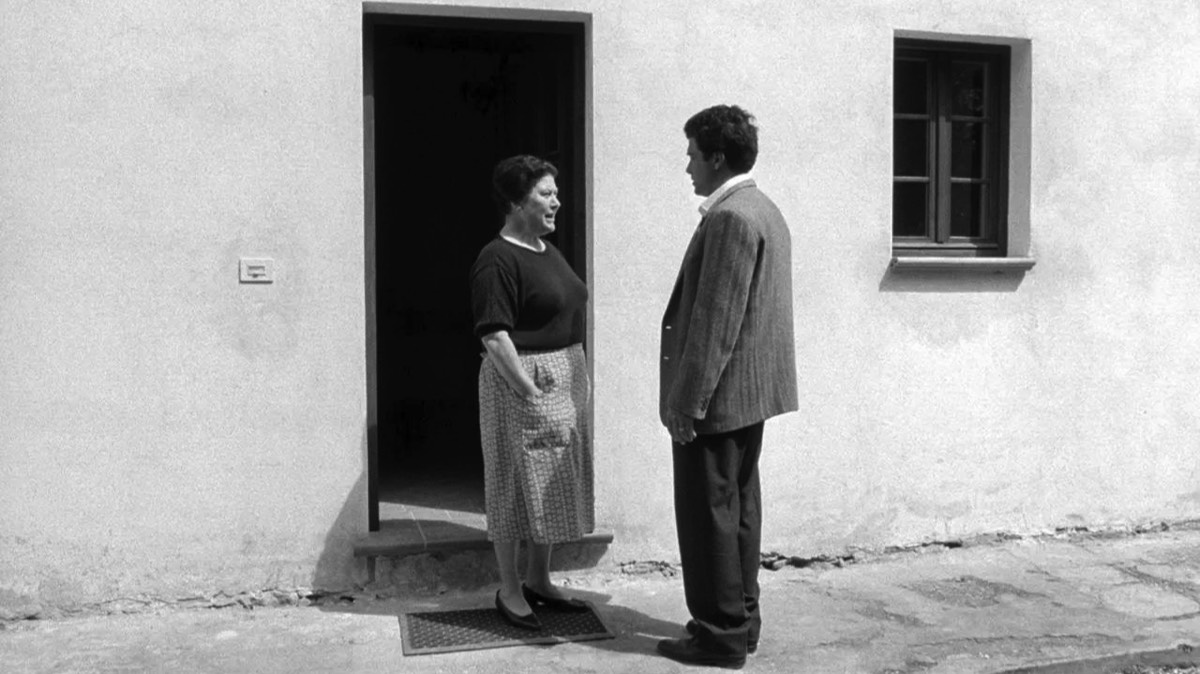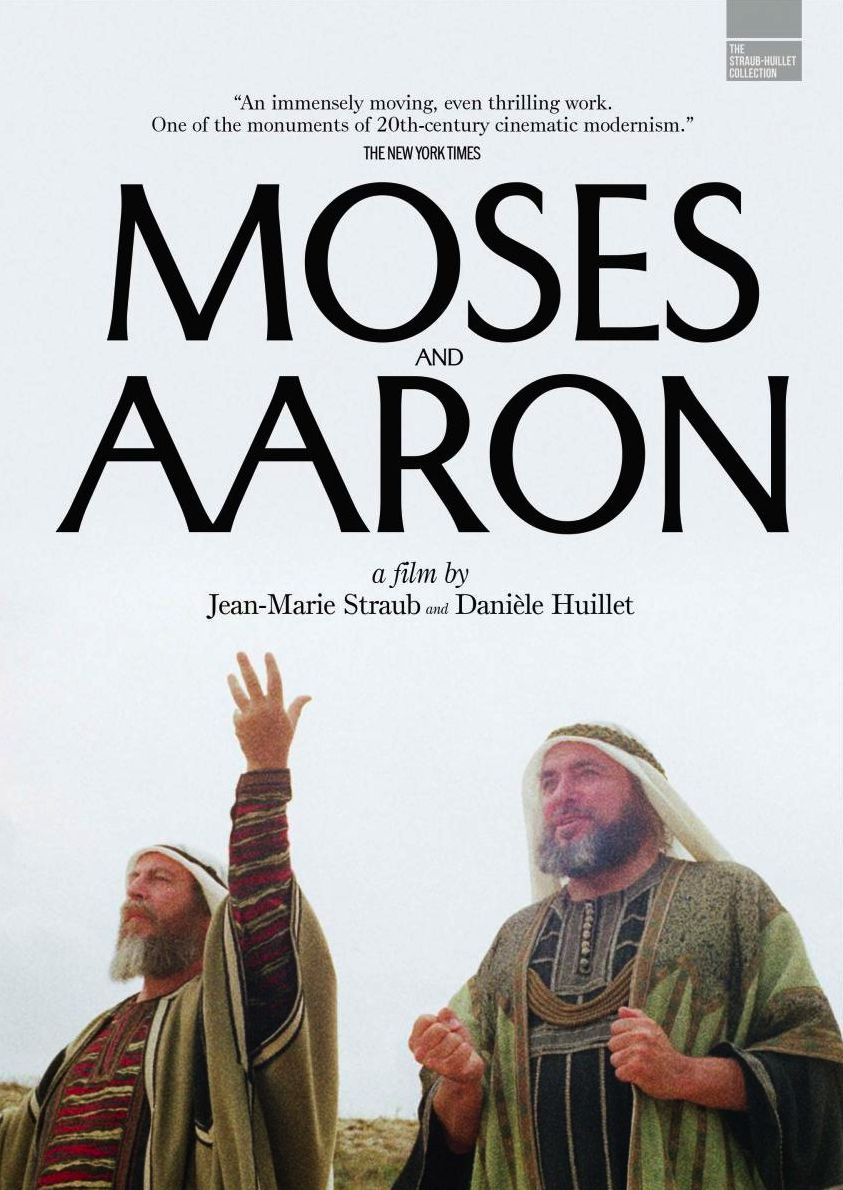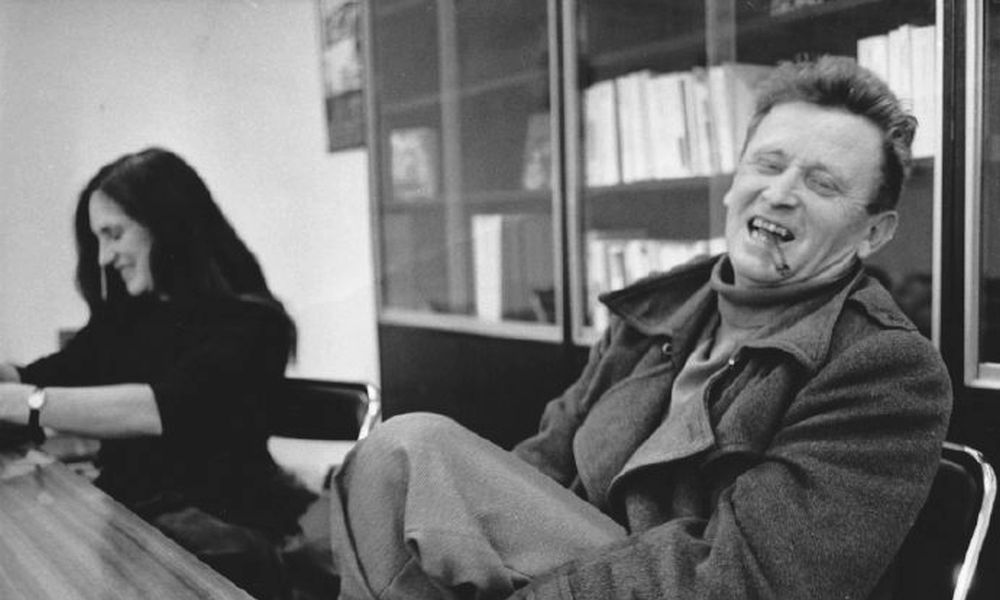"The collaborative team of Jean-Marie Straub and Danièle Huillet (they married in 1959) made films that are among the most austere and politically radical in the history of cinema. This means that their work is virtually unknown outside the festival circuit, the one exception being Chronicle of Anna Magdalena Bach (1968)." - Roger Bardon (The Rough Guide to Film, 2007)
Jean-Marie Straub & Danièle Huillet
Director / Editor / Screenwriter / Producer / Cinematographer
STRAUB (1933-2022) Born January 8, Metz, Moselle, Lorraine, France; HUILLET (1936-2006) Born May 1, Paris, France
Top 250 Directors
STRAUB (1933-2022) Born January 8, Metz, Moselle, Lorraine, France; HUILLET (1936-2006) Born May 1, Paris, France
Top 250 Directors
Key Production Countries: France, West Germany, Italy, Germany, Switzerland
Key Genres: Drama, Short Film, Documentary, Biopic, Family Drama, Avant-garde/Experimental
Key Collaborators: Renato Berta (Cinematographer), William Lubtchansky (Cinematographer), Martine Marignac (Producer), Angela Nugara (Leading Actress), Jean-Paul Toraille (Cinematographer), Giovanni Canfarelli Modica (Cinematographer), Christophe Clavert (Cinematographer/Editor), Vittorio Vigneri (Leading Character Actor), Angela Durantini (Character Actress), Barbara Ulrich (Leading Actress), Olimpia Carlisi (Leading Actress), Arnaud Dommerc (Producer)
Key Genres: Drama, Short Film, Documentary, Biopic, Family Drama, Avant-garde/Experimental
Key Collaborators: Renato Berta (Cinematographer), William Lubtchansky (Cinematographer), Martine Marignac (Producer), Angela Nugara (Leading Actress), Jean-Paul Toraille (Cinematographer), Giovanni Canfarelli Modica (Cinematographer), Christophe Clavert (Cinematographer/Editor), Vittorio Vigneri (Leading Character Actor), Angela Durantini (Character Actress), Barbara Ulrich (Leading Actress), Olimpia Carlisi (Leading Actress), Arnaud Dommerc (Producer)
"Straub is an extreme, austere exponent of minimalist cinema. His work is an attempt to clarify the nature of his medium, and no task is as likely to unsettle or offend people who consider themselves familiar with the medium... His austerity may leave gaps in his output, and the films themselves will usually be hard to find. But no one seriously interested in film should neglect them or the theoretical issues that attend them." - David Thomson (The New Biographical Dictionary of Film, 2002)
"Straub began directing in the early 60s and soon became recognized as a leading voice in the New German Cinema. His style is typically sparse, minimal, elliptical, and austere. His wife, Danièle Huillet, collaborates on his films as producer and writer." - The MacMillan International Film Encyclopedia, 1994

Sicilia! (1999)
"The films of Jean-Marie Straub and Danièle Huillet are best understood in the context of contemporary developments in radical, materialist cinema. They offer what many people see as a genuine alternative to both dominant narrative cinema and conventional art movies. Their work is formally austere and demands attentive, intellectual participation from audiences. However, it must be acknowledged that many people find their films nearly impenetrable and absolutely boring." - M.B. White (International Dictionary of Films and Filmmakers, 1991)
"Some filmmakers’ work is demanding. The austere films of French husband-and-wife team Jean-Marie Straub and Danièle Huillet are difficult. Jean-Luc Godard is challenging, but his films often yield a high degree of pleasure – in their humour, their use of colour and their attraction to beauty. Straub-Huillet, who made more than 25 films together between the early 60s and Huillet’s death in 2006, are difficult because they insist that reality principles are more important than pleasure principles." - Toby McKibbin (BFI, 2019)
"Straub's films deal with social issues, the process of film-making, and the artist's relation to his material. His works are essays on subjects, as are Godard's. For the most part, Straub's productions are cold and distant although not necessarily unemotional." - William R. Meyer (The Film Buff's Catalog, 1978)
"In short, Straub's demanding but intellectually rewarding cinema rigorously rejects the illusionism favoured by mainstream cinema." - Geoff Andrew (The Director's Vision, 1999)
"One of the key figures of the New German Cinema, Jean-Marie Straub worked most of his life with his wife and artistic partner, Danièle Huillet… Straub and Huillet's films offer the audience a transcendent and clarifying experience, and are deeply admired internationally for their purity, clarity, and sincerity of purpose." - Wheeler Winston Dixon (501 Movie Directors, 2007)
"Film has never seen a collaboration like that between Jean-Marie Straub and Danièle Huillet, a fiercely intellectual husband-wife duo whose decades-spanning oeuvre aimed to spark a revolution among the masses. Hailed by critics, academics, and filmmakers alike, Straub-Huillet’s collection is at once among cinema’s most pluralistic — spanning shorts and features, documentaries and fiction, contemporary stories and period pieces — and most rigorous, forged by an ascetic and intellectually demanding style. It contains adaptations of Kafka and Brecht, homages to D.W. Griffith, Renoir, and Bresson, and treatises on political matters both current and eternal." - Grasshopper Film
"Straub and his wife Danièle Huillet, with whom he works in close collaboration, are exponents of 'minimalist' film-making. Their films are austere in the extreme and are not easy to comprehend by those who see the cinema existing only in the terms laid down by orthodox narrative films. Straub's films are nevertheless highly organized in their use of sound and image, and are as much about the processes of film-making as they are about their ostensible subjects; consequently they can seem tedious to those who seek entertainment, and offensive to audiences who wish to see the conventional aspects of storytelling on screen." - The Illustrated Who's Who of the Cinema, 1983
"Born in France, they worked in Germany during the 1960s and in Italy thereafter. Though they shared screen credit, with Huillet's name coming first, many critics referred to their work solely as Straub's - a sign of the necessity for greater recognition of women's contribution to cinema. Their first feature-length film, Chronik der Anna Magdalena Bach (1968) addressed the historical subject of a male artist, the eighteenth-century composer Johann Sebastian Bach, through the consciousness of his wife." - Robert Sklar (Film: An International History of the Medium, 1993)
Selected Filmography
{{row.titlelong}}
GF Greatest Films ranking (★ Top 1000 ● Top 2500)
21C 21st Century ranking (☆ Top 1000)
T TSPDT R Jonathan Rosenbaum
21C 21st Century ranking (☆ Top 1000)
T TSPDT R Jonathan Rosenbaum
Jean-Marie Straub / Favourite Films
City Lights (1931) Charles Chaplin, Les Dames du Bois de Boulogne (1945) Robert Bresson, Diary of a Country Priest (1950) Robert Bresson, Gertrud (1964) Carl Theodor Dreyer, Lady Windermere's Fan (1925) Ernst Lubitsch, A Man Escaped (1956) Robert Bresson, Monsieur Verdoux (1947) Charles Chaplin, La Nuit du carrefour (1932) Jean Renoir.
Source: Grasshopper Films (2016)
City Lights (1931) Charles Chaplin, Les Dames du Bois de Boulogne (1945) Robert Bresson, Diary of a Country Priest (1950) Robert Bresson, Gertrud (1964) Carl Theodor Dreyer, Lady Windermere's Fan (1925) Ernst Lubitsch, A Man Escaped (1956) Robert Bresson, Monsieur Verdoux (1947) Charles Chaplin, La Nuit du carrefour (1932) Jean Renoir.
Source: Grasshopper Films (2016)
Jean-Marie Straub & Danièle Huillet / Fan Club
Pedro Costa, Jonathan Rosenbaum, Tag Gallagher, George Clark, Kent Jones, Nicole Brenez, Filipe Furtado, Bernard Eisenschitz, Francisco Algarín Navarro, Andy Rector, Patrick Keiller, José Luis Torres Leiva.
Pedro Costa, Jonathan Rosenbaum, Tag Gallagher, George Clark, Kent Jones, Nicole Brenez, Filipe Furtado, Bernard Eisenschitz, Francisco Algarín Navarro, Andy Rector, Patrick Keiller, José Luis Torres Leiva.
"Fan Club"
These film critics/filmmakers have, on multiple occasions, selected this director’s work within film ballots/lists that they have submitted.
These film critics/filmmakers have, on multiple occasions, selected this director’s work within film ballots/lists that they have submitted.


